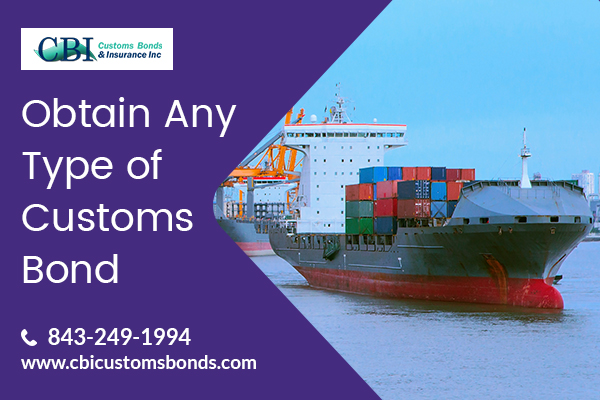How Does A Continuous Customs Bond Work?
Importing goods into the US and
working with Customs and Border Protection can be taxing. It takes a long time
to fulfill the subtle requirements of filing an appropriate customs bond alone. Depending on the
type of merchandise, its value, and requirements of different government
authorities such as CBP, EPA, FDA, etc. the value and details of your continuous customs bond may vary.
A customs bond acts as a security
to CBP and the US treasury department to ensure importer will pay all duties,
taxes, and fines levied on the imports. It also ensures that the shipment will
comply with all laws and regulations.
What is a continuous bond?
A continuous customs
bond covers multiple import entries into the destination port during an
entire year. However, a renewal of continuous bond does not necessarily occur
on yearly bases as the importer always have a choice of paying an advance
payment of a bond to activate it for up to three consecutive years.
This bond remains active and terminated by the CBP whenever
a termination application is filed by the principal. It is the most commonly
used bond for commercial purposes and includes $50,000 coverage for a 12-month
period.
How does it work?
A single entry bond is another option for importers who tend
to import only once in a year. This bond is never less than the total value of
import and incurred taxes, duties, and fees. Traders who need to import
frequently in a year can apply for continuous
import bond. They are automatically renewed every year and can be canceled
by physically noticing to the concerned authority.
In case, the principal does not follow the laws and CBP
fails to collect monies due to the principal, CBP will have the right to seek
up to bond amount from the insurance/surety company.
ISF
Importer Security Filing (ISF or 10+2) is mandatory for
importers to file before the goods loaded to the vessel. You may not need an
ISF with continuous import bond. CBP
requires importers to submit an ISF 24 hours before of cargo being placed to
the vessel in which they have to submit containerized cargo information.
A customs bond is
a financial guarantee between three parties – Importer (principal), CBP
(obligee), and Insurance/Surety Company. So as an importer, you can obtain a customs
bond contacting to a customs broker or freight forwarding company. The broker
will do all the document, paperwork, and purchase of the bond on behalf of you.




Comments
Post a Comment